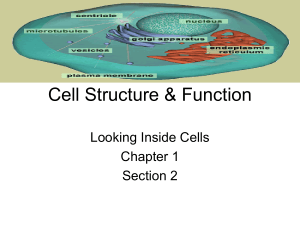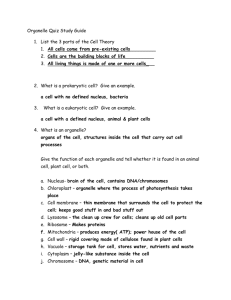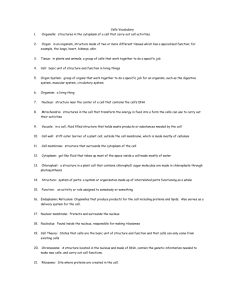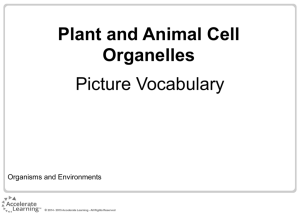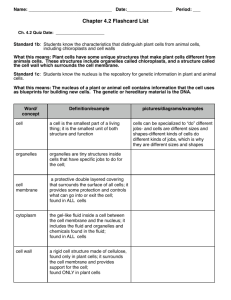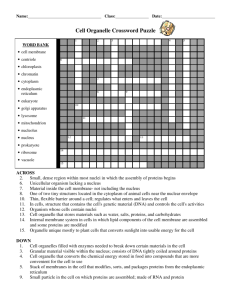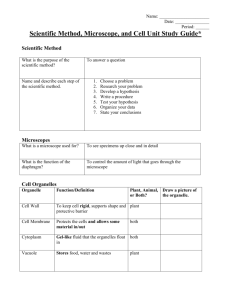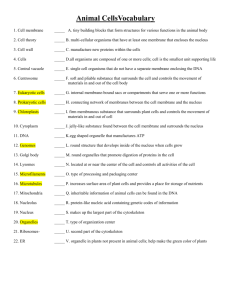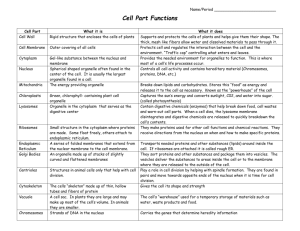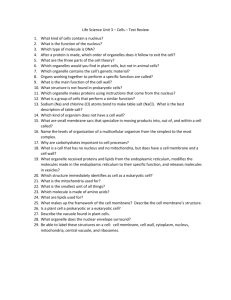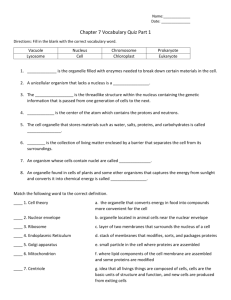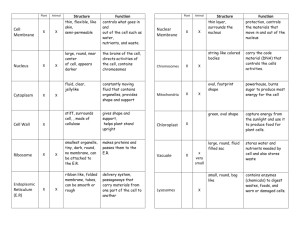Cell Theory, Cell Structure and Function Vocabulary
advertisement
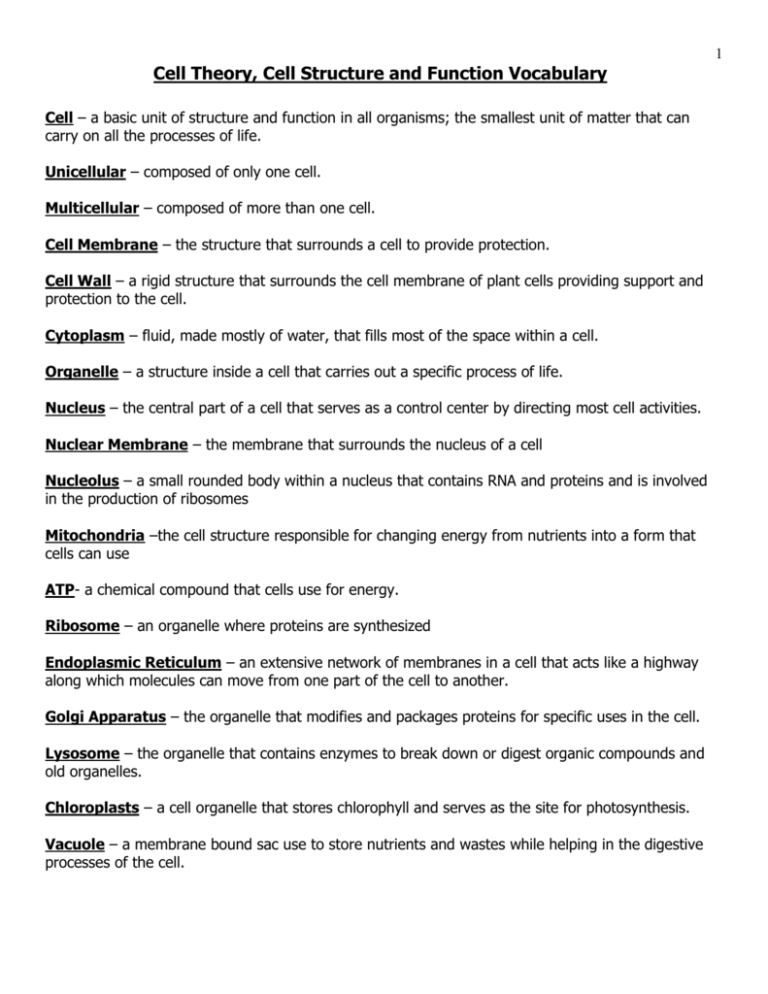
1 Cell Theory, Cell Structure and Function Vocabulary Cell – a basic unit of structure and function in all organisms; the smallest unit of matter that can carry on all the processes of life. Unicellular – composed of only one cell. Multicellular – composed of more than one cell. Cell Membrane – the structure that surrounds a cell to provide protection. Cell Wall – a rigid structure that surrounds the cell membrane of plant cells providing support and protection to the cell. Cytoplasm – fluid, made mostly of water, that fills most of the space within a cell. Organelle – a structure inside a cell that carries out a specific process of life. Nucleus – the central part of a cell that serves as a control center by directing most cell activities. Nuclear Membrane – the membrane that surrounds the nucleus of a cell Nucleolus – a small rounded body within a nucleus that contains RNA and proteins and is involved in the production of ribosomes Mitochondria –the cell structure responsible for changing energy from nutrients into a form that cells can use ATP- a chemical compound that cells use for energy. Ribosome – an organelle where proteins are synthesized Endoplasmic Reticulum – an extensive network of membranes in a cell that acts like a highway along which molecules can move from one part of the cell to another. Golgi Apparatus – the organelle that modifies and packages proteins for specific uses in the cell. Lysosome – the organelle that contains enzymes to break down or digest organic compounds and old organelles. Chloroplasts – a cell organelle that stores chlorophyll and serves as the site for photosynthesis. Vacuole – a membrane bound sac use to store nutrients and wastes while helping in the digestive processes of the cell.
